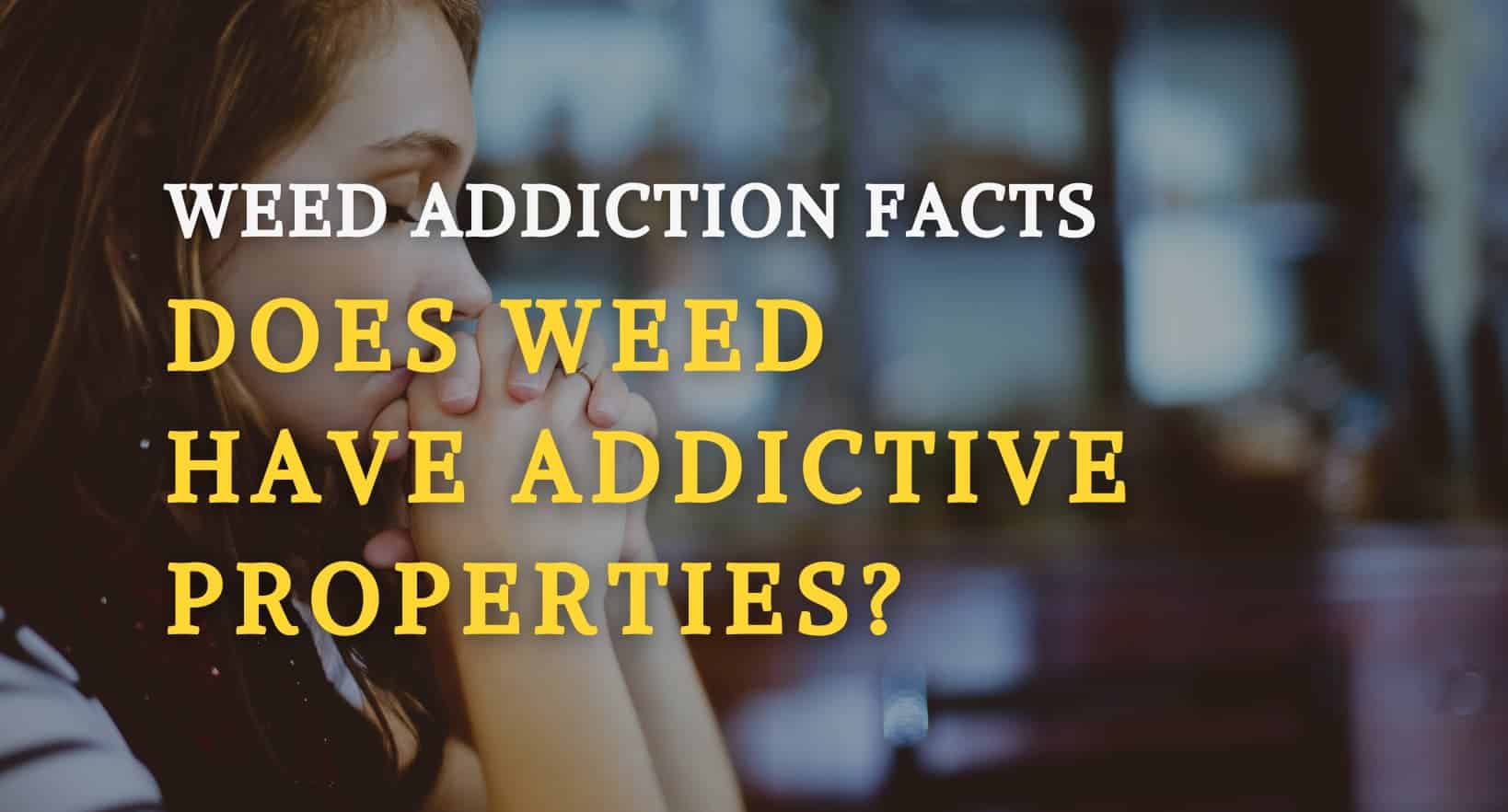
Does Weed Have Addictive Properties? (Weed Addiction Facts)
As the world continues to strive for a better understanding of marijuana and its effects, one question remains at the forefront of many discussions: does weed have addictive properties? Debates surrounding the physical and psychological aspects of marijuana addiction have grabbed the attention of both medical professionals and the general public alike.
Key Takeaways
- Understanding cannabis requires knowledge of THC and CBD, as well as an awareness of increased potency.
- Marijuana use disorder is characterized by frequent and prolonged use, cognitive impairment, and withdrawal symptoms.
- To avoid a marijuana use disorder it is important to seek professional help with evidence based treatment programs such as Trafalgar Addictin Treatment Centre’s inpatient rehab program or online rehab program.
Understanding Cannabis and Its Effects
Marijuana, derived from the Cannabis sativa plant, is best known for its mind-altering properties. Its primary psychoactive components are THC (tetrahydrocannabinol) and CBD (cannabidiol) (1). Over the years, marijuana potency has significantly increased, with the average THC content in confiscated samples reaching more than 15% in 2018 (2).
The distinction between medical marijuana and recreational marijuana lies mainly in their THC and CBD content, with medical marijuana often having higher CBD levels and lower THC levels, while recreational marijuana has higher THC and lower CBD concentrations (3).
Regulation on Cannabis Use in Canada
Cannabis regulation in Canada dates back to 1923, but it wasn’t until 2001 that the government granted access to cannabis for severe health conditions. In 2014, Canada revised its regulations to mandate that cannabis be purchased from a licensed commercial grower (4).
Following the 2014 policy changes and the 2018 legalization of recreational cannabis, daily cannabis use has seen a surge. The implications for patient health outcomes of changes in the medical cannabis program and legalization of recreational use remain an important area for future research.
The Role of THC in Marijuana
THC is responsible for the psychoactive effects experienced by marijuana users, as it interacts with the brain’s cannabinoid receptors, part of the endocannabinoid system. This over-activation of the system leads to the “high” commonly associated with marijuana use. THC plays a significant role in marijuana addiction due to its psychoactive properties.
Some studies suggest that the heightened potency of today’s marijuana could lead to increased physiological dependency in certain individuals.
Medical Cannabis vs. Recreational Marijuana
Medical cannabis, used for therapeutic purposes, typically contains higher concentrations of CBD and lower levels of THC, whereas recreational marijuana has the opposite composition. Research on medical marijuana is ongoing, with a focus on its potential use for pain management and treatment of spasticity associated with multiple sclerosis.
The FDA-approved medication Marinol, which contains synthetic THC, is used to manage nausea in cancer chemotherapy patients and augment appetite in individuals with AIDS.
Is Marijuana Physically Addictive?
Popular opinion often conflicts with scientific evidence – marijuana addictive properties are real (5). Regular use can lead to physical and psychological dependency. Studies have shown that approximately 9% of cannabis users will develop an addiction, with the figure rising to up to 50% among those who use it daily or near daily (6).
The most common signs of marijuana use disorder include alterations in behavior, difficulty recalling information, and the presence of drug-related objects (7).
The Criteria for Substance Dependence
Diagnosing a cannabis use disorder can only be done by a healthcare professional, such as those working in mental health services administration. Some of the diagnostic criteria may include frequent and prolonged use, developing resistance to the drug’s effects, consuming more marijuana than originally planned, and others.
Cognitive impairment and dissatisfaction with different aspects of life can also be signs of chronic marijuana use, which may lead to marijuana abuse or cannabis dependence, and ultimately result in negative consequences.
Marijuana Withdrawal Symptoms
Those with marijuana use disorder may experience a variety of withdrawal symptoms. These can include:
- irritability
- restlessness
- loss of appetite
- difficulty sleeping
- weight loss
- shaky hands
- loss of motivation
- heightened verbal and physical aggression after a week of marijuana abstinence
Related Reading: Marijuana Detox: Withdrawal and Recovery
Expert consultation is necessary to determine if certain symptoms are a result of marijuana withdrawal or cannabis withdrawal.
The Debate: Physical vs. Psychological Addiction
The debate surrounding the classification of marijuana addiction as physical or psychological is ongoing and inconclusive. Some contend that marijuana addiction is primarily physical, while others assert that it is primarily psychological.
The scientific evidence indicates that while marijuana does not typically cause physical addiction with withdrawal symptoms, it can lead to psychological addiction or problem use.
How a Weed Addiction Can Develop
Addiction, including drug abuse, generally develops through seven stages:
- Initiation
- Experimentation
- Regular use
- Risky use
- Drug and alcohol dependence
- Substance use disorder (SUD)
- Treatment
Physical marijuana addiction develops through brain adaptation to large drug levels, specifically a reduction in the production of and sensitivity to produced endocannabinoid neurotransmitters (8). Social and environmental factors contribute to the risk of developing a weed addiction.
Related Reading: How Long Does Weed Withdrawal Last?
Marijuana’s Influence on Addictions to Other Substances
Marijuana use with other substances, such as prescription drugs, has been observed in some cases (9). The debate on marijuana as a “gateway drug” continues, as some studies propose that marijuana use may precede the use of other substances and the onset of addiction, while others dispute the gateway drug theory (10).
Marijuana and Alcohol Dependence
Research has indicated that marijuana use is strongly associated with alcohol use, and habitual cannabis use has been linked to an increased likelihood of developing alcohol dependence. Simultaneous use of alcohol and marijuana may lead to adverse effects and boost the potential for higher THC levels and greater impairment.
However, the data on the co-use of marijuana and alcohol is inconclusive, and further research is required to gain a comprehensive understanding of the relationship between these substances.
Marijuana and Tobacco Smokers
Studies have indicated that there is a correlation between marijuana use and tobacco smoking. Research has demonstrated that smoking marijuana typically involves inhaling more deeply and holding one’s breath for a longer period of time than cigarette smokers, resulting in a greater exposure per breath. Additionally, co-use of cannabis and tobacco is more commonly observed among youth aged 12-17.
However, it’s worth noting that while cigarette smoking is a significant risk factor for lung cancer, the link between marijuana smoking and lung cancer remains unclear.
Marijuana and Broader Substance Abuse
The potential risks and benefits of using marijuana as a treatment for other addictions remain a topic of discussion and research. While some studies suggest that marijuana may be a potential treatment for opioid addiction and other drugs, more research is needed to fully comprehend its efficacy.
One criticism against using marijuana as a treatment for other addictions is that it may increase the risk of using other drugs (11).
How to Avoid a Marijuana Use Disorder
Taking proactive steps to reduce or cease cannabis use is necessary to minimize the risk of developing a marijuana use disorder. Therapy, medication, and lifestyle changes can be utilized to address symptoms of anxiety, depression, or sleep disorders. Professional assistance can provide guidance and support during the process of lifestyle changes and managing withdrawal symptoms.
Trafalgar’s Approach to Cannabis Addiction Treatment
Trafalgar Residence provides various addiction treatment options, including inpatient rehab, outpatient counseling, and online rehab programs. These programs are tailored to each client and are delivered by a team of accredited professionals with extensive clinical and research experience.
Inpatient Rehab
Trafalgar’s inpatient rehab program for cannabis addiction treatment includes:
- Therapy
- Counseling
- Support groups
- Other evidence-based interventions
This program is comprehensive and individualized to meet the needs of each patient.
Individualized treatment plans for cannabis addiction are developed through a comprehensive physical and mental health assessment upon admission, allowing for the creation of a personalized treatment plan tailored to each individual’s unique circumstances.
Outpatient Counselling Centre
Trafalgar’s outpatient counseling center for addiction treatment provides the following services:
- Psychiatry consultation
- Individual therapy
- Mentoring/accountability support
- Process and skill groups
- Private family counseling
- Partner support therapy
- Lifelong aftercare support
- Continuation of care
These services are intensive and evidence-based, and are designed to treat addiction and concurrent mental disorders.
Online Rehab Program
Trafalgar provides an online rehab program for addiction and mental health issues as an alternative to in-person treatment, which is accessible from home. The program offers the following resources and features to aid in the recovery process:
- Individual therapy
- Virtual group therapy
- Family therapy
- Partner support therapy
- Continuation of care
- Aftercare
Overcome Cannabis Use Disorder with Trafalgar’s Expert Care
Understanding the addictive properties of weed is crucial, especially as we navigate the complexities of marijuana use disorder. At Trafalgar Residence, we offer specialized treatment for those affected by cannabis addiction, providing a supportive environment to overcome this challenge.
Inpatient Addiction Treatment for Intensive Care
Our inpatient addiction treatment at Trafalgar is designed for individuals who require a structured and immersive environment to address their cannabis use disorder. In our serene, homelike residential setting, you’ll receive tailored therapy and counseling, focusing on both the addiction and its underlying causes. Our CARF-accredited program includes a range of evidence-based treatments, ensuring a comprehensive approach to your recovery.
Outpatient Treatment for Continued Support
For those seeking flexibility, Trafalgar’s outpatient addiction treatment offers a viable solution. This program provides the same high-quality care as our residential treatment, but in a format that allows you to maintain your daily responsibilities. Through consistent therapy sessions, support groups, and access to our skilled professionals, you’ll have the resources necessary to manage your recovery while integrating back into everyday life.
Start Your Journey with Trafalgar
If you’re ready to address your cannabis use disorder and begin a journey towards long-term recovery, Trafalgar Residence is here to help. Our team of experienced professionals is committed to providing personalized care, helping you to overcome addiction and improve your overall well-being. Contact us for a free consultation and take the first step towards a healthier, more fulfilling life.
Sources
- Government of Canada – About cannabis
- NCBI – [Lessons from 20 years of medical cannabis use in Canada]
- CCSA – Clearing the Smoke on Cannabis: Medical Use of Cannabis and Cannabinoids – An Update
- Government of Canada – Regulations under the Cannabis Act
- Government of Manitoba – [Canabis Myths]
- NCBI – [Probability and predictors of transition]
- CDC – Understanding Your Risk for Cannabis Use Disorder
- PubMed – CB1 and CB2 receptor expression and promoter methylation in patients with cannabis dependence
- NCBI – [Drug interactions with cannabinoids]
- NIDA – Cannabis (Marijuana) Research Report: Is marijuana a gateway drug?
- NCBI – [Use of Cannabis for Harm Reduction Among People at High Risk for Overdose in Vancouver, Canada (2016–2018)]
Meet Our Renowned Experts
You will receive treatment from the very best.
We have a team of accredited professionals who have many years of clinical and research experience.
Our Rehab Programs
Consult with a professional now to learn how we can help you or your loved one.






